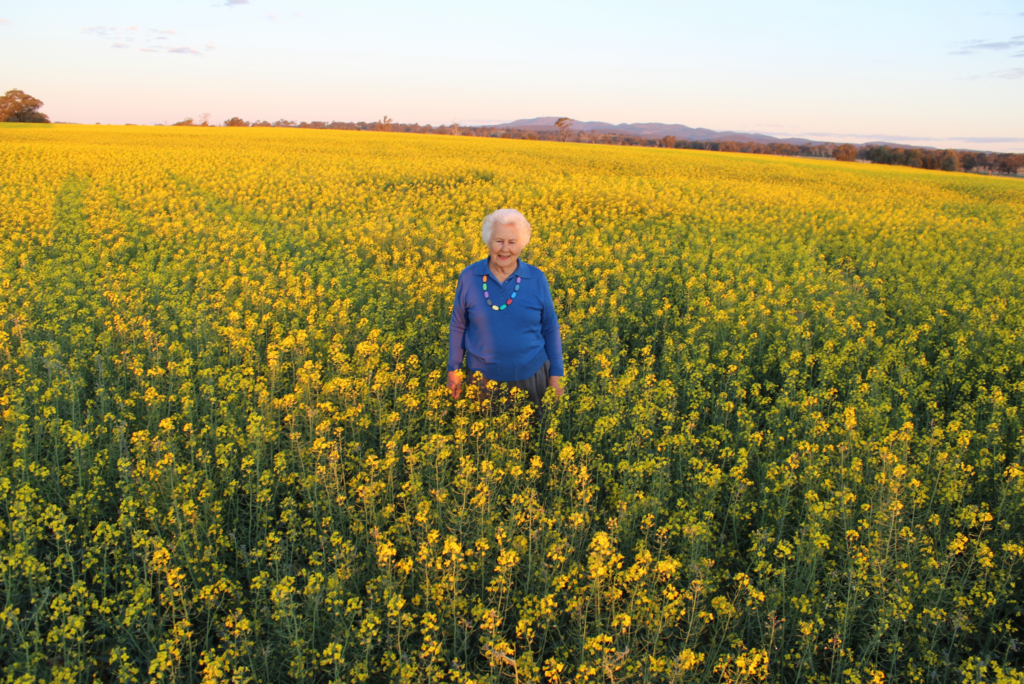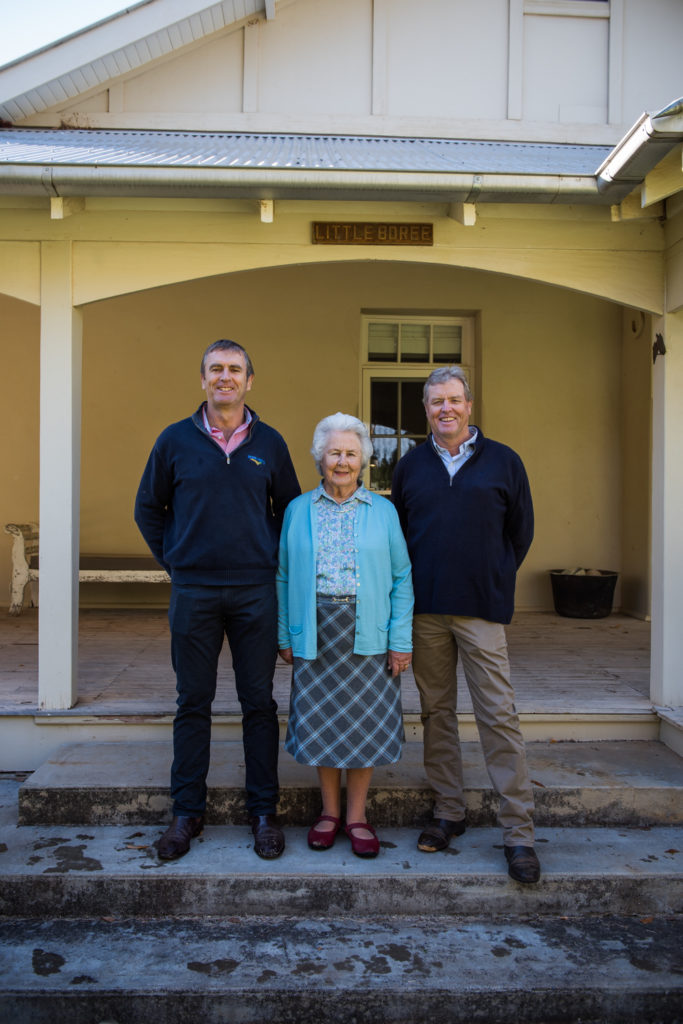Marianne Mac Smith’s introduction to factory life was as a primary school student in New Zealand during World War II.
“Dad was overseas. Mum and my grandmother worked in Wattie’s cannery in Hastings, which had the contract to make all the tinned food for the troops during the war.
“Every Friday afternoon and each Saturday morning, my sister Suzanne and I had to work and our wages were donated to the Red Cross. I had to stand in front of a great big mincer and my job was to throw the carrots in to be diced up.”
Little did young Marianne know that her early foray into food production and manufacturing would last a lifetime – just like the Red Cross, a charity she’s also committed many years to.
Nor could she know that many years later, her sons would establish their own manufacturing plant in a different country, crushing canola grown on the family farm.
It was in February 1956 when she moved to the farm where new husband Lance Mac Smith was born, Little Boree at Cudal, near the thriving regional NSW city of Orange.
They’d met in the spring of 1954. It was a chance encounter at the Parkes aerodrome, when Mr Mac Smith travelled to see his sister Felicity and her new friend from New Zealand, who was to become his wife.
“He came over to meet the plane,” Mrs Mac Smith told The Cultivator. “I came and stayed here at Boree and the rest, as they say, is history.”
She was invited to join the Tuesday tennis group, “which has been going for 60 or 70 years”.
“I had four children – Mary, Bob, Rachel and Peter. I’ve always said you’ve only got your children on borrowed time. But I’ve been extremely lucky because they’ve all come back to the district.”
Their daughter Mary returned to the farm to work with her father on the property. Sons Bob and Pete farmed too, but in 1990 – with low commodity prices and interest rates hovering around 18 per cent – their second ‘payment’ for wheat delivered to the former Australian Wheat Board was actually a bill. They needed a Plan B.
“Canola had been working agronomically,” said Mrs Mac Smith. “They were getting up to $300 a tonne for canola, while wheat was paying $90 a tonne.
“The gross margin to grow canola rather than wheat was double.”
In 1991, the Mac Smiths established retail brand Australian Country Canola.
“Within 12 months, the boys found the equipment they needed to establish a crushing plant at home,” said Mrs Mac Smith. “My youngest daughter Rachel returned from Europe and quickly became part of the business.”
The hours before the launch of their retail oil at the inaugural Orange FOOD Affair in 1992 are still remembered well.
“By about 2pm on the Saturday, the boys were still trying to extract the oil,” said Mrs Mac Smith. “They tried everything in the ensuing 10 hours, but at midnight they still had no oil.
“Eventually they suggested trying another batch of canola seed. As Bob went to get some, it started raining. It was the greatest fluke as that damp seed produced oil straight away. “It was unbelievable and the relief when we had about five dozen bottles to take to market was something else. They sold out and everything was all right.”
Their early success came at some cost, though. “In those days, we had to manually apply the labels. I labelled that many bottles that I had to give up Tuesday morning tennis because my thumb and fingers lost their strength,” said Mrs Mac Smith.
“The boys knew they had a tough decision to make about the future: expand on the farm or start from scratch on a new site.
“They were very fortunate when Dick Honan, the owner of the Manildra Group, visited them. He came here and told the boys he wanted to expand into the oil business, and left them all his telephone and facsimile numbers and told them to get in touch if they needed a hand, or a chat. “They had some tough decisions to make but Lance and I supported them 100 per cent. Lance always told them, ‘If that’s what you want to do, do it’. He never stopped them trying anything.”
In 2005, sons Bob and Pete formed a joint venture with the Honan family. In 2006, they began building on a new site in the Central West NSW town of Manildra, and the new business – MSM Milling – began producing oil in April 2007.
“One of the nice things is that I was able to take Lance over to the mill shortly before he died,” said Mrs Mac Smith.
“Dick Honan was there and he told us he was blown away that the boys got the business running in 18 months, when he’d expected it to take 10 years.
“That’s what I like so much about Dick. He’s got the same goal, vision, passion and culture as Bob and Pete. He’s been a great mentor and is a very empowering person. While there have been challenges in the world of commodities over the years, it’s been a complementary partnership.”
Mrs Mac Smith has also notched up some notable achievements of her own, including being presented a Gilt Rosette for 60 years of service to Red Cross – which unofficially started some years prior, as a small child during WWII in the NZ cannery.
But not one for big-noting, Mrs Mac Smith wouldn’t tell The Cultivator about being crowned Cudal’s Citizen of the Year in 1956. Nor that she’s held multiple positions on several community groups.
Still today, she’s not one to sit still – even after knee replacements, replacing tennis with aqua-aerobics. But there’s no aqua on Tuesday mornings – they’re spent in the kitchen, baking her famous ginger bread with MSM Milling’s 100 per cent Australian-grown and made auzure Canola Oil, to be delivered still-warm to her sons and the rest of the MSM crew for smoko.
Service Along Life’s Walk From Factory To Farm Service Along Life’s Walk From Factory To Farm

